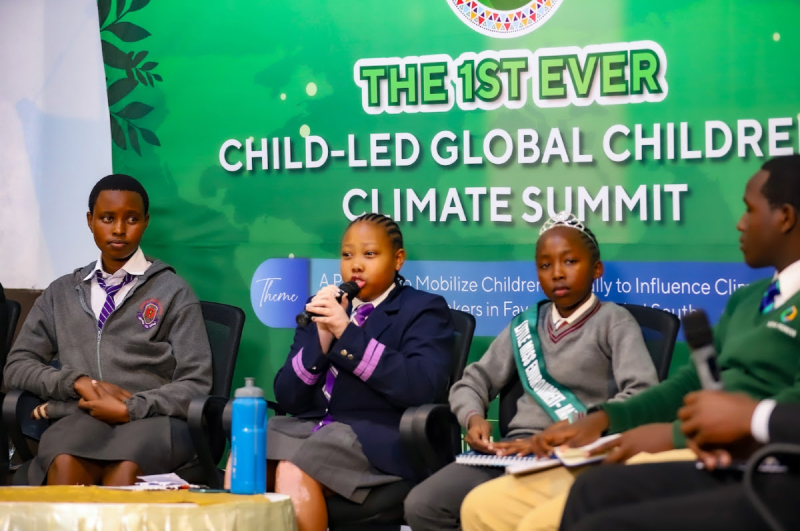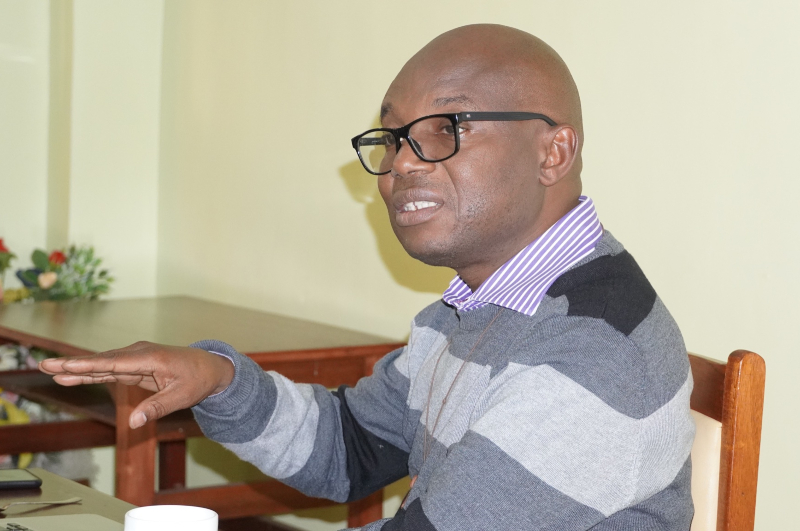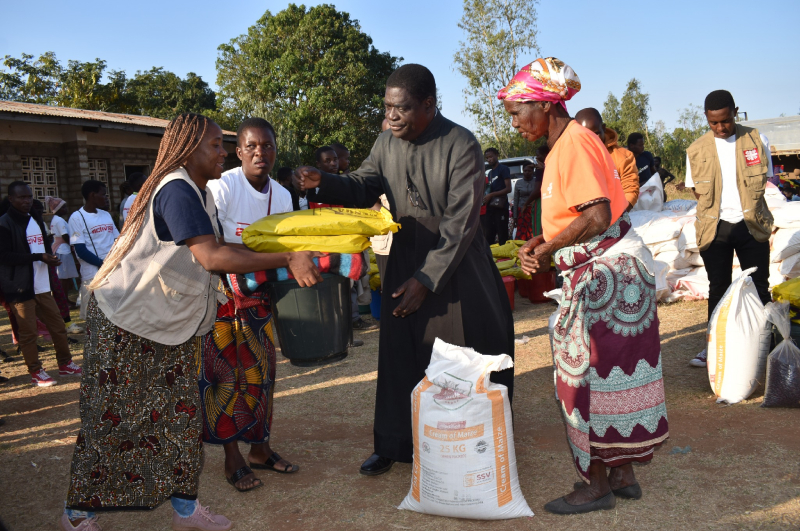

The findings of the sixth assessment report of the Intergovernmental Panel on Climate Change (IPCC) indicates that Climate Change is happening, and humans will continue to experience its impacts.
Among other key findings, the report points out that reckless human activities are threatening natural systems, global temperatures are rising, the frequency and intensity of extreme weather events are increasing, inequalities are being exacerbated and the global economy is becoming more vulnerable (IPCC, 2021). These findings concur with the current situation in most developing countries in the global south like Malawi despite their least contribution to the climate crisis. What is frustrating is that the poor, who are already most vulnerable and marginalized in these countries are the ones experiencing the greatest impacts of Climate Change (IPCC, 2021).
Malawi emits lowest carbon but is ranked fifth in the 2021 global climate index list of nations worst affected by climate-related and extreme weather events. Sadly, Malawi will continue to face significant challenges that are related to adverse climate hazards. Already the country has experiencing droughts, floods and cyclones which have been increasing in frequency and intensity over the past two decades, leading to severe consequences on various aspects of the country's well-being (World Bank, 2021). These consequences include impacts on food and water security, water quantity and quality, energy resources, infrastructure (hospitals, schools, road) and the livelihoods of rural communities. The statistics are alarming, with a significant loss of lives and a large population adversely affected by these natural disasters. Floods and droughts are particularly detrimental to food security, leading to chronic food shortages in various regions. The vulnerability of people living near riverbanks to floods is highlighted, as they face not only the risk of untimely deaths but also the potential for disease outbreaks and extensive damage to crops and property. Furthermore, the economic impact of these hazards is substantial, with GDP losses estimated to be nearly 1 percent annually due to floods and even higher losses during periods of drought, such as the significant drought in 1991/92 (World Bank ibid).
A midst all this, women and children face greater vulnerability due to their disproportionate representation among the world's poor and their dependence on threatened natural resources and livelihoods. On one hand, women represent the majority of the world’s poor (70% of 1.3 billion people living in conditions of poverty are women) and are proportionally more dependent on threatened natural resources (McCarthy, 2020). They shoulder the major responsibility of household water supply, energy for cooking and heating as well as food security. In addition, women have less access and control to resources like land, credit, agricultural input, decision making structures, technology, training and extension services that would enhance their capacity to adapt to climate change (Aguilar, 2008). This means that during extreme weather events, women work more to secure household livelihoods. On the other hand, children are helpless when exposed to disasters. They in turn are unable to get adequate services like water, sanitation, health care and education.
The Jesuit Centre for Ecology and Development (JCED) during the Caravan of Hope captured and raised awareness on some of these climate realities through the eco-immersion experiences, listening sessions and community activation in visited frontline communities that were affected by Cyclone Freddy. Here are some stories and voices of women and children and how they are being impacted by Climate Change.
1. Increased risk of death and injury
Chiradzulu and Phalombe villages provide a painful experience of how climate change puts women and children on a risk of death and injury. Mchenga and Ntauchira villages of Phalombe and Chiradzulu respectively experienced flooding and mudslides which exposed women and children to injury and death . According to the information provided by the survivors, in concurrence with that from the Department of Disasters Management (DODMA), Ntauchira and Mchenga villages recorded 29 and 81, deaths respectively with women representing 70 %. Many got injured as they got swept with the floods, narrowly escaping death by climbing trees and rocks. Over 21 children died during the cyclone from Mchenga Village alone.
An anonymous woman from Chilobwe, Blantyre shared her shocking story of the cyclone narrating that she lost three of her children only to save one. She explained that the failure to save the three children was due to her lack of strength and the children were small to save themselves. She also recounted a distressing incident where a child got stuck on a window frame while being carried by the flood waters. Although the child was eventually rescued, he suffered severe injuries from hot mudslide, resulting in burns from the waist down.
2. Increased risk of orphanhood, child headed families and child marriages
In Phalombe district, a 23-year-old Alinafe Siyankhuni narrates her sad story in tears how she lost her sick mother during Cyclone Freddy. The situation made her to become the bread winner of her family and she eventually got married early.
“On that day, while there was a heavy down our, I and my 5 siblings were home giving company to our sick Mother. Suddenly, one of the walls of the house collapsed. We did not understand what was happening. At that time, she was bedridden which made it difficult for us to bring her out of the house. So, I got married to a stranger who offered to help me and my siblings.”
3. Increased risk of trauma
When people experience life threatening situations like floods and mudslides, their mental health is affected. In all the communities we visited, we could see that the survivors are still traumatised. For women and children, it was worse because the cyclone had affected their cognitive capacity with corresponding impacts on their well-being. Loss of loved ones, property, displacement, and separation left them heavily disturbed.
4. Increased pollution and Scarcity of water
Climate change has an effect to access of safe and clean water in most communities in Malawi due to droughts. In Kasungu district, the intensity of droughts and dry spells are putting water resources at risk. This is evidenced with women and children in Njalale village who are relying on getting water from the polluted Chitete river. The communities along this river have experienced the increase in pollution and drying up of the river especially during summer.
Aken Nyirongo narrates her experience:
“We fetch water from Chitete river for drinking, cooking, and other domestic use. Apart from the fact that the river is very far, the quality of the water is very poor and unhealthy as Chitete river is a heavily polluted river. The availability of water in the river is also dubious especially during summer. As a result, we are not able to get enough water to support our homes. The situation is even worse for our children who accompany us to fetch water and end up being late or absent for school.”
5. Poor quality education
Katayanthona Primary School located in Kasungu is one of the community schools that is affected by climate related impacts. Because of scarcity of water, the school no longer have teachers staying on the school premises or communities nearby. All teachers moved out of the community opting for clean and safe water. This affects the quality and delivery of lessons resulting in poor performance from the children.
To sum up, the evidence provided in this write up shows that climate change is further worsening the livelihoods of the poor, especially women and children. Droughts and floods are major impediments to Malawi with far-reaching social, economic, and environmental implications. Addressing these challenges is crucial for the well-being of the country and its people especially women and children. Efforts to address gender disparities and promote sustainable resource management are crucial to reduce this vulnerability.
Related Articles
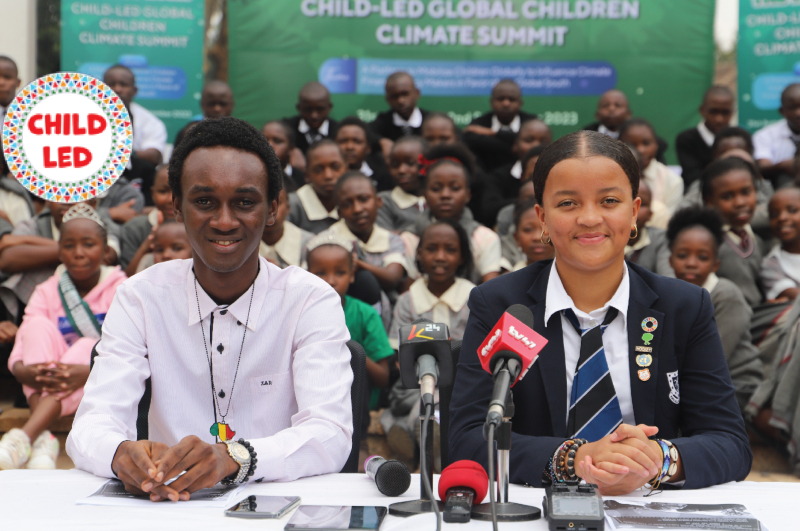
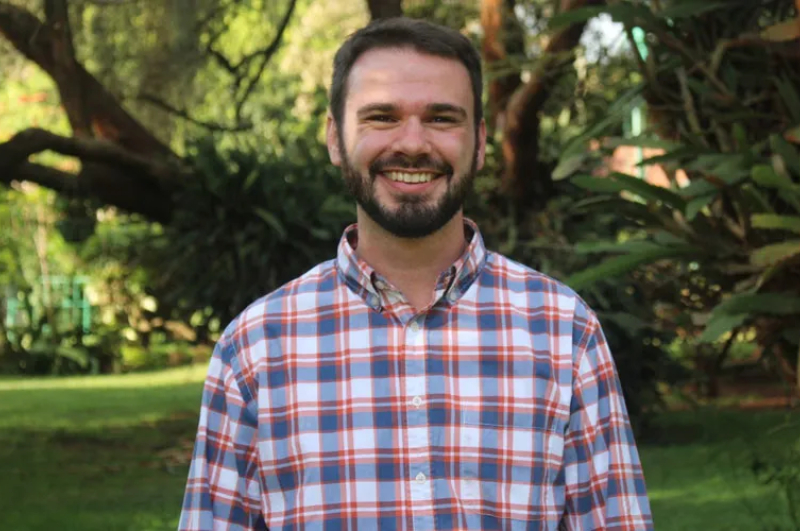
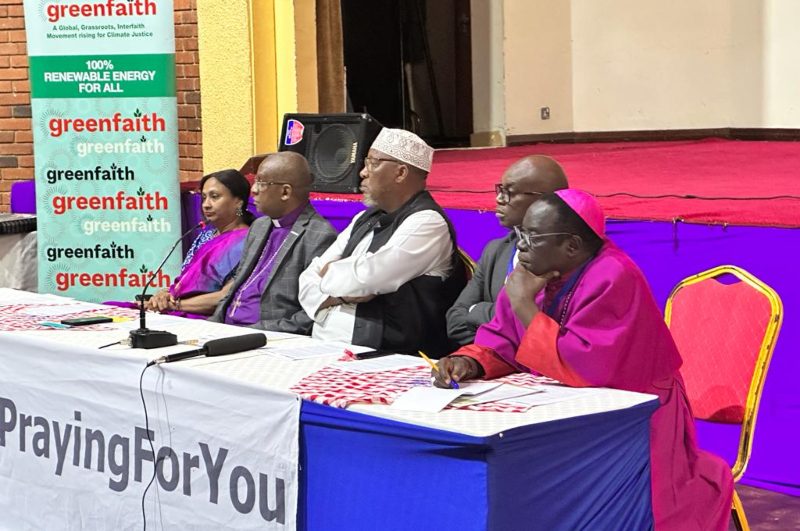
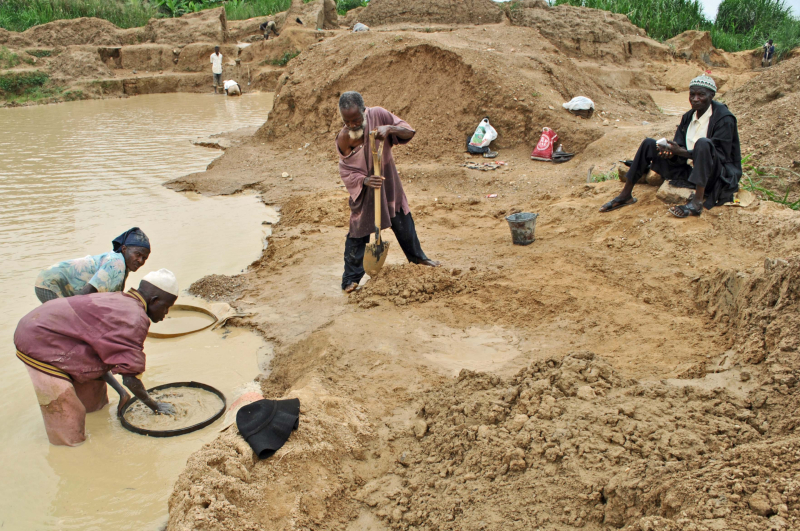
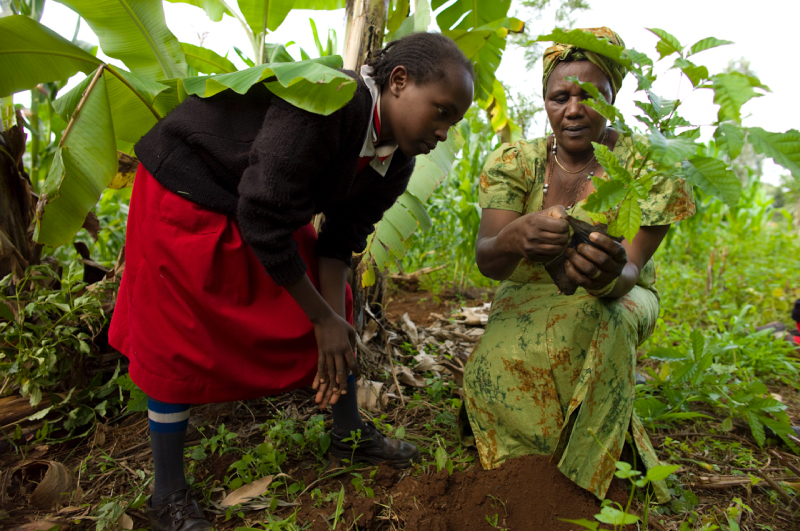
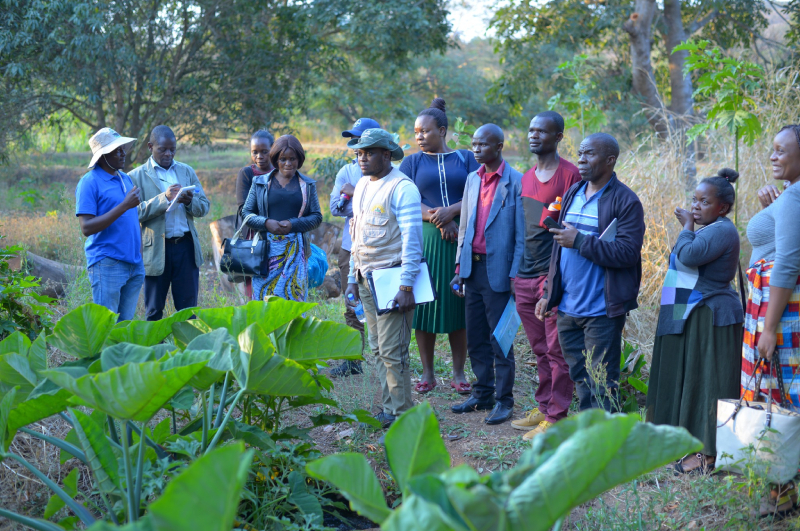
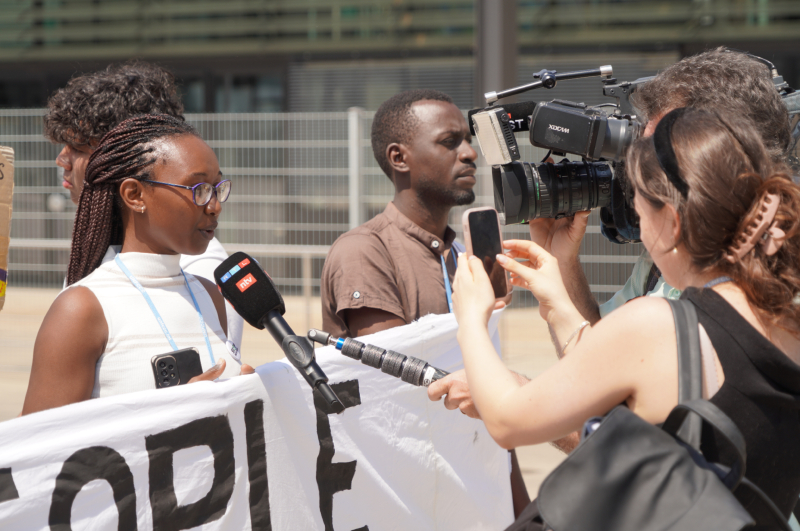
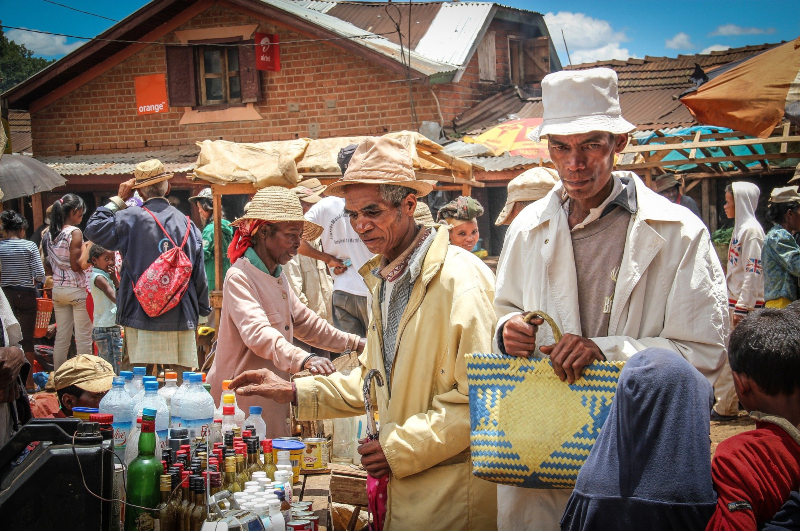
Select Payment Method
Pay by bank transfer
If you wish to make a donation by direct bank transfer please contact Fr Paul Hamill SJ treasurer@jesuits.africa. Fr Paul will get in touch with you about the best method of transfer for you and share account details with you. Donations can be one-off gifts or of any frequency; for example, you might wish to become a regular monthly donor of small amounts; that sort of reliable income can allow for very welcome forward planning in the development of the Society’s works in Africa and Madagascar.
Often it is easier to send a donation to an office within your own country and Fr Paul can advise on how that might be done. In some countries this kind of giving can also be recognised for tax relief and the necessary receipts will be issued.


